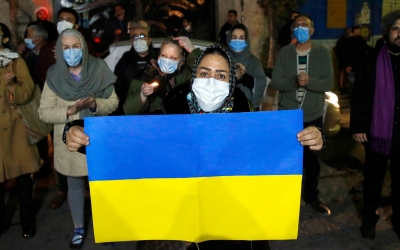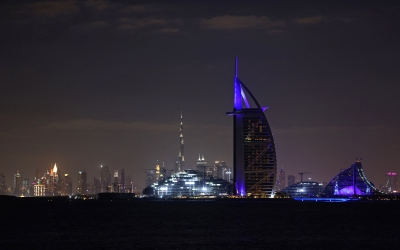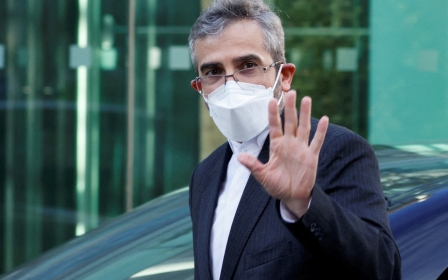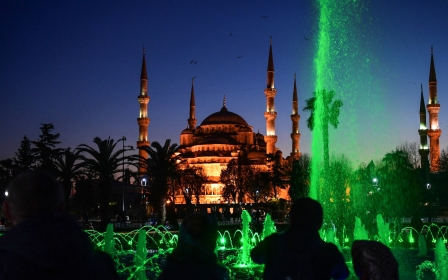Despite Russian curveball, Iranian businesses hold out hope for deal
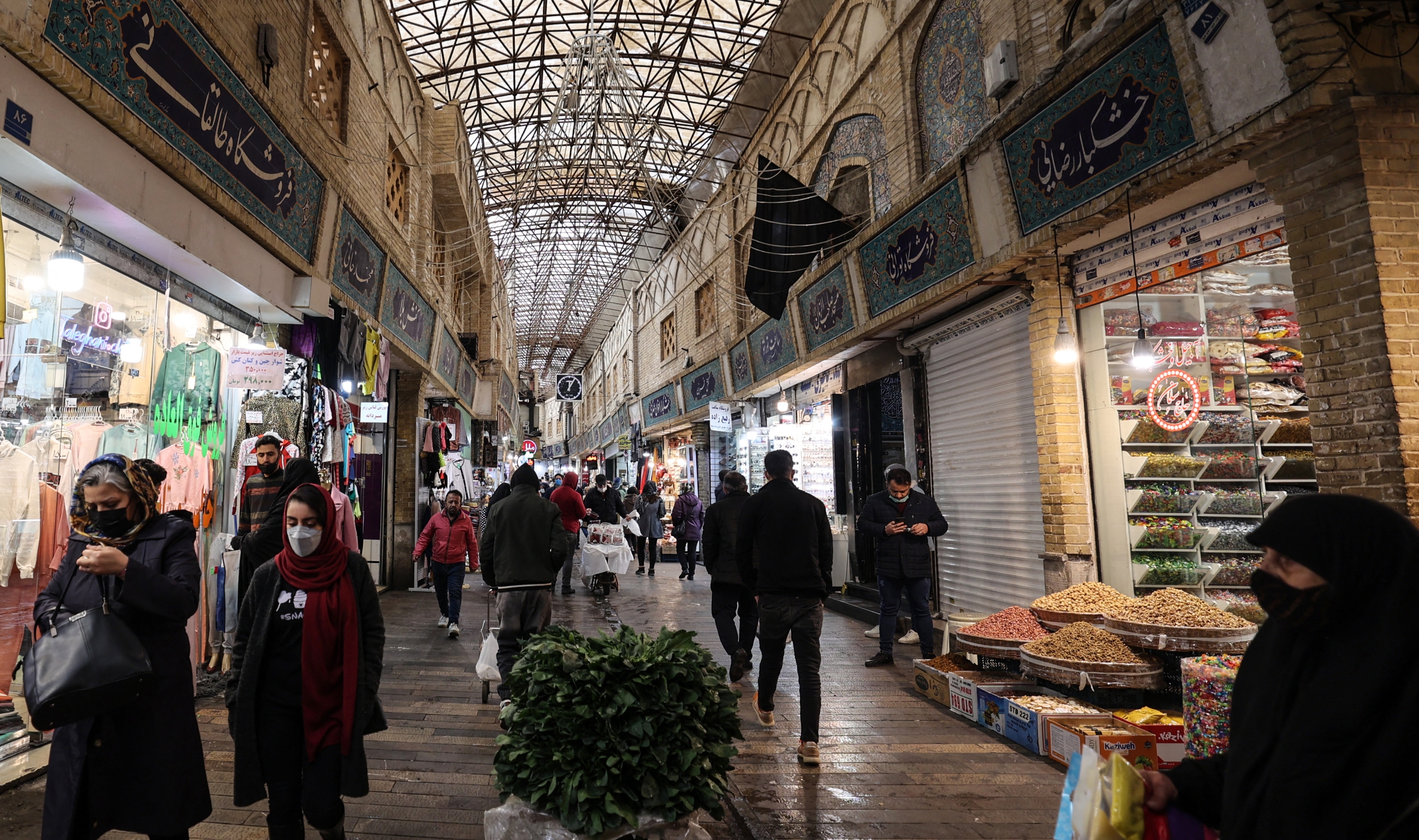
Iran's corporate sector is hopeful for a return to the 2015 nuclear deal despite a square-off between the West and Russia over Ukraine adding new uncertainty to negotiations in Vienna.
"This is certainly an issue no one expected," Amir Cyrus Razzaghi, the head of Ara Enterprise Group, a consulting firm in Tehran that advises foreign companies looking to enter Iran's market, told Middle East Eye.
"I don't think the deal will be cancelled but it will be postponed, which is unfortunate because businesses thought this would all be wrapped up by now."
The US and Iran have been engaged in indirect talks to restore the 2015 nuclear deal for 11 months, and in recent weeks officials on both sides indicated that an agreement was within reach.
But on Friday, the negotiations were officially paused. EU foreign policy chief Josep Borrell cited "external factors". Days earlier, Russia threw a curveball into the talks when it demanded written guarantees from the US that any Ukraine-related sanctions would not restrict its ability to trade with Iran in the future.
Along with the US, Germany, France, China, and the UK, Russia is one of the original signatories to the accord. Moscow served as a go-between in the talks for Washington and Tehran and was envisioned as playing a key role in shipping excess enriched uranium out of Iran.
"Ridiculous," was how one Iranian executive who continues to do business in Europe described the move to MEE. "They want to use Iran as a card. [The] Iranian people are shocked."
'No comparable euphoria'
Iranian businesspeople who spoke with MEE had been optimistic that a deal was at hand, but the latest twist serves as a reminder for both local and foreign companies on how quickly things can change.
Western firms that came to Iran after the Obama-era accord was signed were hit hard when former US President Donald Trump decided to withdraw from the agreement in 2018 and reimpose sanctions.
The French energy company Total was forced to pull out of a $4.8bn gas project; Boeing and Airbus lost contracts valued at roughly $39bn; while Honeywell - which was netting revenues of around $115m - had to exit the country.
Dagmar von Bohnstein, managing director at the German-Iranian Chamber of Commerce in Tehran, told MEE that this was one of the reasons why western companies were "far more realistic" now than before about capturing the Iranian market.
Even if negotiators are able to overcome the latest differences, "there will not be a comparable euphoria with regard to the possibilities of the Iranian market", she said.
Western companies brave enough to venture into Iran's market at the time also learned the hard realities of operating in a country with an opaque regulatory environment, massive bureaucracy and a high tax burden.
Despite these challenges and the new uncertain fate of negotiations, western firms are still exploring opportunities, Sarmad Afarinesh, CEO of Aarax Consulting in Tehran, told MEE.
He is fielding inquiries each week from companies, some of which have already hired his firm to conduct market research and intelligence in anticipation of a deal.
Iran's untapped market of 83 million people is still a tantalising prize, and a run-up in commodity prices means its natural resources are in high demand.
The Islamic Republic boasts the world's second-largest natural-gas deposits and the fourth-largest reserves of oil. But at 1 million barrels per day, its oil exports are less than half the amount it shipped before the reimposition of sanctions. It also has rich but underutilised deposits of copper, zinc and iron ore.
Afarinesh believes that rising commodity prices, driven in part by the recent outbreak of conflict in Ukraine, bodes well for Iran’s hand at the negotiating table and in boardrooms.
"The timing is very good. There is a massive shortage in the world of everything that Iran has right now," he said.
Amir Masoud, a businessman based in Tehran who works with western firms selling industrial manufacturing equipment, said he is still optimistic that an agreement will be reached.
"The priority for the Iranian government is to improve the economy and the only way to do that is a deal with the US."
Analysts estimate that Iran has about 103 million barrels of oil sitting at sea that could quickly be released into the market. But tapping into its other natural resources could prove more difficult and underscores one of the reasons the initial accord didn’t live up to its economic promises.
'Cash-starved economy'
In 2016, Washington lifted all nuclear-related sanctions on Iran and its banks were reconnected to the Swift international transfer system. But other sanctions targeting individuals and entities tied to the Revolutionary Guard and Iran's missile programme were kept in place.
At the height of optimism about the deal, western banks were still reluctant to provide loans to Iranian businesses for fear of running foul of sanctions.
Both European and US firms worked in Iran, but American companies had to use foreign subsidiaries to operate there. Financing of the sort needed for big capital investments rarely materialised.
Since the Trump administration withdrew from the Iran deal and reimposed economic sanctions, the local currency, the rial, has cratered and the official inflation rate hovers above 40 percent, though some estimates put it upwards of 50.
"This is a cash-starved economy that desperately needs investments and new technology," Razzaghi said.
But many Iranians expect little in the way of financing. "If there is a deal, the western companies will come, but mainly to sell products," Masoud said.
He believes one area where there could be more investment is in non-sensitive industries like consumer products and food and beverages. There is already a precedent for this.
Danone established a local manufacturing base in Iran following the 2015 accord and other businesses in the food products sector were given more leeway by western capitals and Tehran to operate in the country.
Still, Moscow's demand to continue trading with Iran if the nuclear deal is revived risks imperilling the ability of Iranian firms to obtain western financing in the future.
One of the central requirements for Iran's return to the global financial system depends on Tehran’s willingness to adopt laws against money laundering and terrorist financing.
But one Iranian businessman who spoke to MEE on condition of anonymity said he was cautiously optimistic the recent impasse in the Vienna talks could be overcome because Russia would look to use Iran as a window to avoid sanctions, "[just] like Iran used Russia and China," in the past, he said.
Middle East Eye propose une couverture et une analyse indépendantes et incomparables du Moyen-Orient, de l’Afrique du Nord et d’autres régions du monde. Pour en savoir plus sur la reprise de ce contenu et les frais qui s’appliquent, veuillez remplir ce formulaire [en anglais]. Pour en savoir plus sur MEE, cliquez ici [en anglais].


